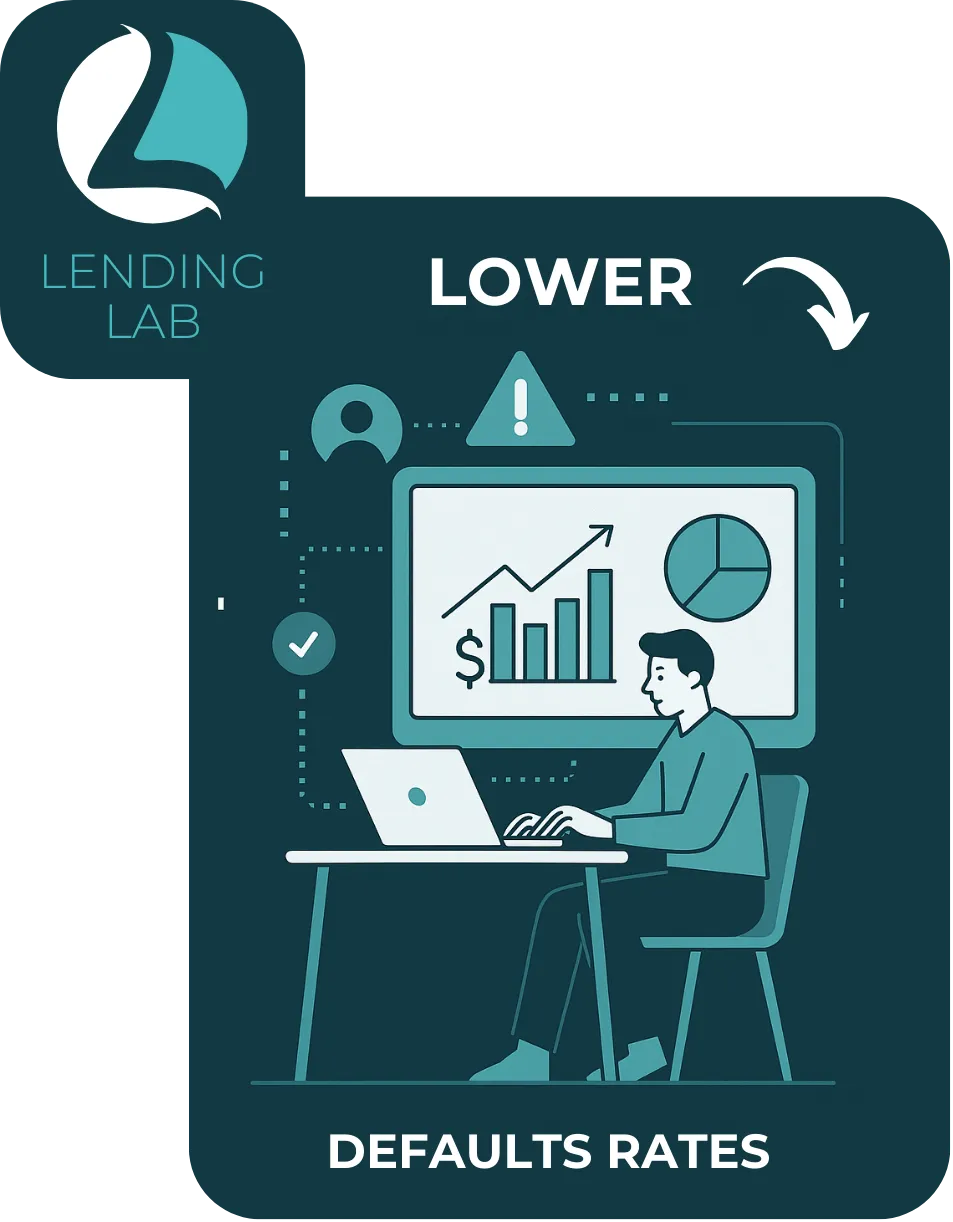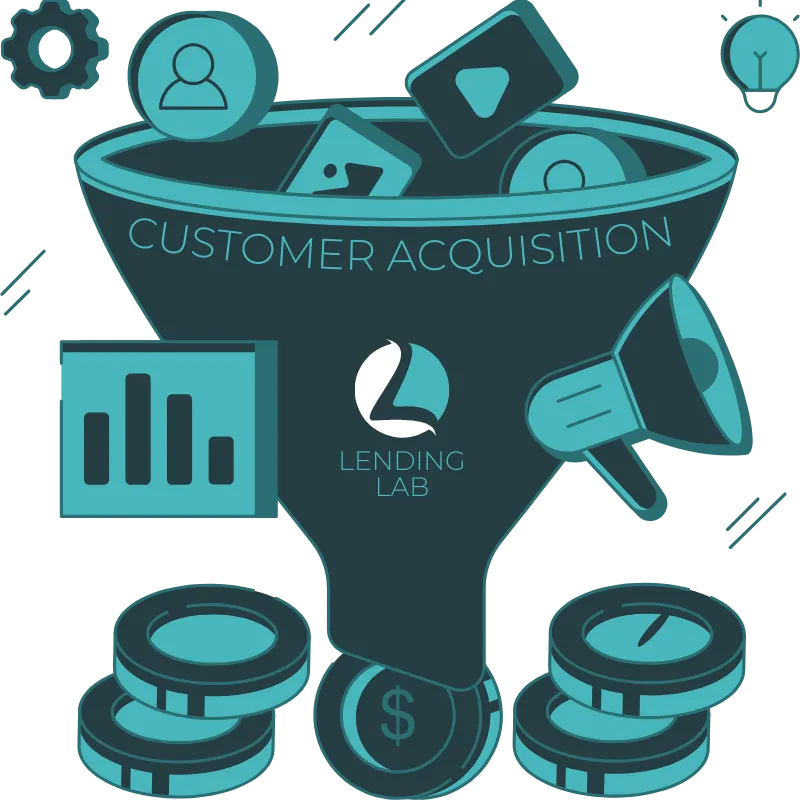How to Use Loan Management Software to Reduce Default Rates
In the world of short-term lending, defaults are more than just a line item on a report—they’re a barrier to growth, profitability, and long-term customer retention. Reducing default rates isn’t just about collections—it’s about smarter lending practices, tighter operations, and proactive communication.
One of the most powerful tools to help lenders achieve this is a modern Loan Management Software (LMS). In this article, we’ll walk through the leading causes of default, the role software plays in preventing them, and the exact features lenders should implement to improve outcomes and strengthen portfolios.

Understanding Default:
What Causes Borrowers to Miss Payments?
Before solving for defaults, it’s important to understand why they happen. In short-term lending, defaults can stem from a variety of factors, including:

Lack of payment reminders or poor communication

Overextended borrowers with multiple loans

Unexpected financial emergencies

Confusing user interfaces or payment portals

Weak underwriting or lead sources
While some level of default is expected, many of these issues are preventable—especially when lenders have the right tools to catch early warning signs and automate their outreach.
The Role of Loan Management Software
Loan Management Software has evolved far beyond spreadsheets and manual tracking. Today’s best-in-class platforms help lenders manage the full loan lifecycle, from origination and underwriting to servicing, communication, and collections.
An effective LMS doesn’t just track balances—it actively works to prevent problems before they happen. By integrating automation, real-time data and intelligent workflows, loan software can help lenders:
Reduce human error
Respond faster to customer behavior
Score risk more accurately
Keep borrowers engaged and accountable

Think of it as your 24/7 team member—automating tasks, surfacing red flags, and keeping you one step ahead of borrower risk.
Key Loan Management Features That Help Lower Defaults
Let’s dig into the five LMS features that can dramatically impact your default rate:

Automated Payment Reminders and Notifications
Even the most well-intentioned borrower can forget a due date. That’s why automated reminders via SMS, email, and push notification are essential.
A modern LMS allows you to:
Set reminders days before and on due dates
Customize frequency and channel preferences
Trigger reminders based on user behavior (e.g. hasn’t logged in, hasn’t paid)
Include links to your payment portal for one-click access
Why it matters: Timely, proactive reminders reduce friction and make it easy for borrowers to stay current.

Custom Risk Scoring and Underwriting Rules
Not all customers carry the same risk profile. By customizing scorecards and underwriting logic, lenders can:
Avoid funding high-risk loans
Price risk more accurately with tiered interest models
Adjust approval requirements based on lead source or geography
Why it matters: Better decisions at the front of the funnel = fewer defaults at the back end.

Trigger-Based Workflow Automation
When a customer misses a payment or hits a risk threshold, your system should respond instantly.
With the right LMS in place, you can set up workflows to:
Send a personalized message
Offer payment plan alternatives
Escalate to a live agent if the risk is high
Flag the account for review or audit
This kind of automation removes manual bottlenecks and ensures that no borrower falls through the cracks.
Why it matters: Fast action creates trust and prevents delinquency from turning into default.

Customer Portals and Self-Service Options
Today’s borrowers expect convenience and control. Giving them access to a simple, mobile-optimized portal can be the difference between paying on time—or not paying at all.
Integrated portals allow customers to:
View balances and payment history
Make payments or set up autopay
Access FAQs and support channels
Download statements or agreements
Why it matters: Empowered borrowers are less likely to disengage—and disengagement is a leading cause of default.

Real-Time Reporting and Risk Dashboards
You can’t fix what you can’t see. The best loan management systems give you live, visual insights into your portfolio so you can identify trends and intervene early.
Top features include:
Daily default risk scores
Segmented borrower health views
Loan aging reports and cohort analytics
Lead source performance comparisons
By reviewing these dashboards regularly, you’ll not only reduce defaults—you’ll start to predict them before they occur.
Why it matters: Insight fuels action, and action prevents losses.
Best Practices for Implementation
Even with the best software, success depends on how you implement it. Here are a few tips to maximize results:

Start with your highest-risk segments
Use reporting to identify where defaults are most common, and pilot your workflows with that group first.

Build, test, then scale automation
Don’t automate everything out of the gate. Create workflows, test outcomes, and fine-tune over time.

Keep it customer-friendly
Messages and reminders should feel helpful, not pushy. Use clear, friendly language and offer real solutions.

Train your team
Make sure your agents, collectors, and support reps know how to use the system’s insights and automation tools to complement—not replace—their work.
The Results: What You Can Expect
When properly implemented, a modern Loan Management Software platform can yield measurable improvements across the board:
Lower default and charge-off rates
Faster borrower response times
Increased loan repayment completion
More efficient collections workflows
Better customer satisfaction and retention
Over time, this compounds into a healthier portfolio, stronger customer relationships, and a more scalable lending operation.

Conclusion
Reducing customer defaults doesn’t require guesswork or an army of agents—it requires a smarter system. With the right loan management software, short-term lenders can turn risky processes into repeatable, reliable operations that actively prevent default before it starts.
At LendSuite Software, we specialize in equipping lenders with the tools they need to grow faster, lend smarter, and stay compliant every step of the way.
Ready to reduce your default rate?
Book a 15-minute strategy session with our team today and see how LendSuite can help you strengthen your portfolio with less manual work.

Want more Lending knowledge?
Learn about Customer Acquisition Strategy
Cut acquisition costs, increase funded loans, and finally get marketing strategies built for lenders

Powered by the Leaders in Lending Technology
When you partner with LendSuite Software, you tap into the ultimate lending ecosystem:
Contact Info
Sales: +1 (954) 678-4600
Leadership@lendsuitesoftware.com
1200 SW 145th Ave
Suite 310
Pembroke Pines, FL. 33027
USA
Site Links
Sister Links
Follow Us
©2025 LendSuite Software | An Aquila Software Portfolio | All Rights Reserved










